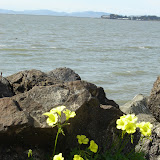 I just read in the March 16th issue of the Chronicle that my alma mater was named as a potential site for the presidential library and museum, which will include the Bush Institute for Democracy. This is yet one more reason why I will no longer contribute to the Alumni Association Fund at SMU.
I just read in the March 16th issue of the Chronicle that my alma mater was named as a potential site for the presidential library and museum, which will include the Bush Institute for Democracy. This is yet one more reason why I will no longer contribute to the Alumni Association Fund at SMU. Thankfully, the Faculty Senate had voted down the resolution, albeit by a very small margin. "The faculty skeptics fear that such an institute would become a partisan spin machine and that its work would tarnish [emphasis mine] the university's reputation."
My fear is that the trustees will want the library and museum (presented as an all-or-nothing deal with the Bush Democracy institute -- a contradiction in terms, I know) so much that they will for the first time disregard the faculty senate's vote (which failed the resolution by such a small margin, mind you). One of the questions that the trustees will have to consider is what will SMU betray by accepting this package, by aligning itself with this institute, an institute that was to "be independently directed [...] and not fall within the university's governance structure." By gaining such resources such as a museum and a library for the community, what will the institution be declaring as its mission and vision for the work of the school? And what does the school risk losing or gaining with this particular added association?
SMU being the private institution that it is will most likely end up supporting the new proposal. It is unfortunate that they are thinking on this when there are so many other worthwhile projects needing their money and attention.
Additionally, by abstaining, what do those three individuals hope to say or not to say? I wonder...







